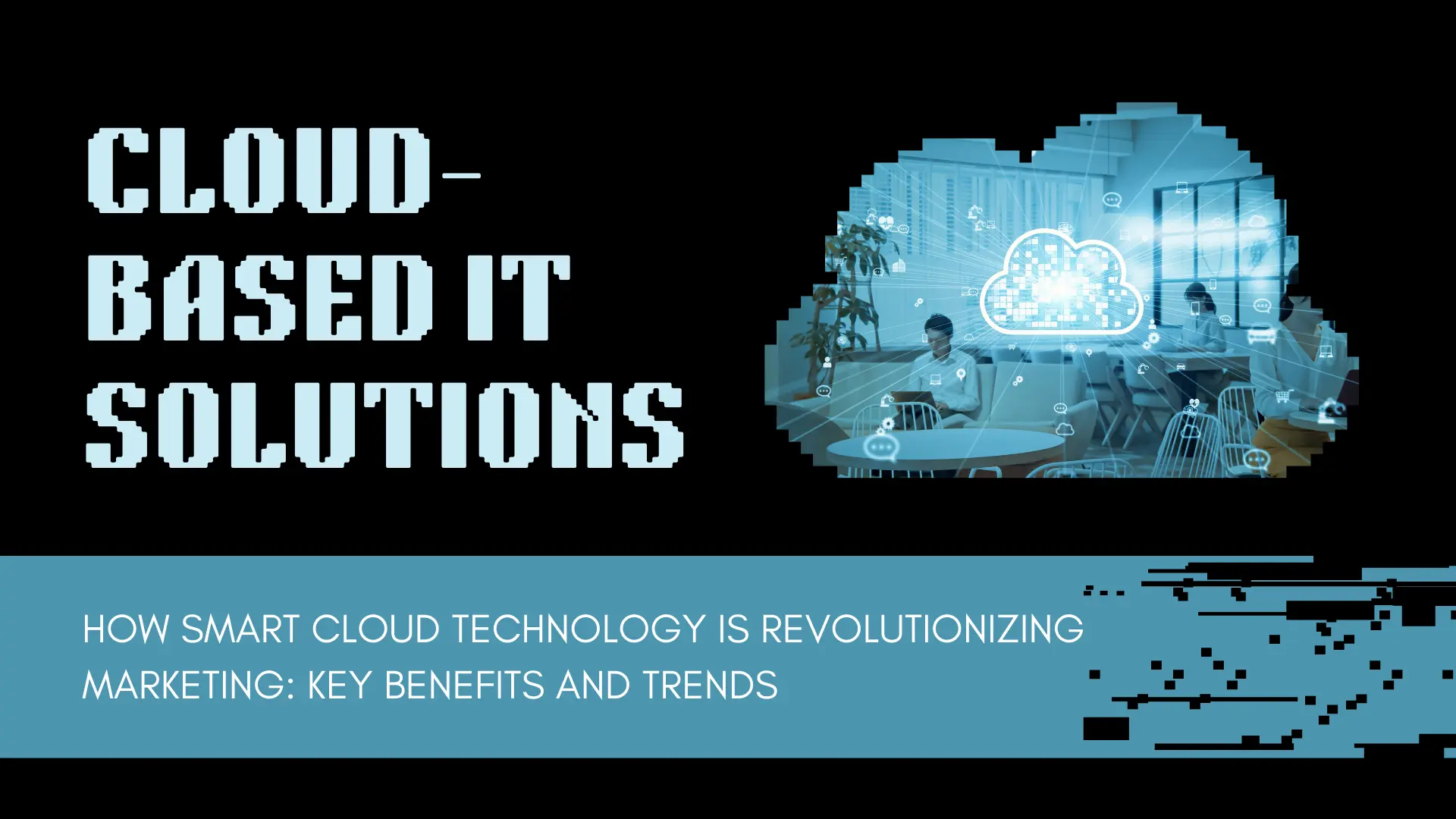Introduction
As marketing becomes more data-driven and customer-centric, the need for efficient, scalable, and intelligent infrastructure is greater than ever. Enter smart cloud technology—a game-changer in how businesses collect, analyze, and act on data. Smart cloud platforms not only offer storage and computational power but also provide advanced AI capabilities that streamline processes and deliver real-time insights. This blog explores how smart cloud technology is transforming marketing strategies, enabling brands to reach their audience with unprecedented precision and agility.
1. Enhanced Data-Driven Insights
Smart cloud platforms bring together data from multiple channels, providing marketers with a holistic view of customer interactions. With AI-powered analytics, brands can extract actionable insights from vast datasets in real time, enabling quick and informed decision-making.
Benefits:
- Customer Behavior Analysis: Understand customer preferences, behavior, and buying patterns.
- Trend Identification: Identify and adapt to emerging market trends faster than competitors.
Example: A retail brand using smart cloud technology to monitor purchasing trends across locations and tailor promotions to high-demand products in real-time.
2. Personalization at Scale
One of the greatest advantages of smart cloud in marketing is its ability to drive personalized customer experiences on a large scale. With AI and machine learning (ML) models, smart cloud platforms analyze data to deliver personalized recommendations, content, and offers.
Key Features:
- Dynamic Customer Segmentation: Group customers based on real-time data, enabling targeted campaigns.
- Recommendation Engines: Deliver personalized product recommendations based on user behavior.
Example: An e-commerce company using smart cloud tools to recommend products based on recent customer behavior, increasing conversion rates and customer loyalty.
3. Automated Marketing Campaigns
Smart cloud technology enables the automation of repetitive marketing tasks, allowing teams to focus on strategic initiatives. Cloud-based platforms can automatically execute campaigns, monitor performance, and adjust parameters to optimize outcomes in real-time.
Benefits:
- Real-Time Adjustments: Campaigns can automatically optimize for the best-performing content or audience.
- Cross-Channel Consistency: Ensure a consistent brand message across email, social media, and other digital platforms.
Example: A B2B SaaS company using smart cloud to automate lead nurturing emails, which adjust based on user engagement, keeping prospects engaged throughout the sales cycle.
4. Improved Collaboration and Workflow Efficiency
With remote work on the rise, smart cloud technology makes it easier for marketing teams to collaborate, share data, and access resources from anywhere. Cloud platforms simplify workflows and improve communication, enhancing team productivity and campaign efficiency.
Key Features:
- Shared Workspaces: Enable teams to collaborate on campaigns in real-time.
- Automated Reporting: Provide up-to-date performance reports accessible to all team members.
Example: A global marketing team that leverages cloud collaboration tools to manage a campaign across multiple regions, ensuring consistent messaging and shared KPIs.
5. Optimized Ad Spend with Predictive Analytics
Smart cloud platforms equipped with predictive analytics help marketers allocate budgets effectively by forecasting campaign performance. By using data from past campaigns, brands can refine their targeting, optimize spending, and maximize ROI.
Advantages:
- Budget Optimization: Allocate funds based on expected performance, reducing waste.
- Real-Time Analytics: Continuously monitor ad performance and adjust bidding strategies dynamically.
Example: A brand running a Google Ads campaign that adjusts budget allocation in real-time based on predictive insights, maximizing reach for high-intent audiences.
6. Enhanced Security and Data Privacy Compliance
With data privacy regulations tightening, smart cloud technology ensures compliance while keeping customer data secure. Many smart cloud providers offer encryption, access controls, and compliance tools that allow marketers to protect customer information and meet regulatory standards.
Security Features:
- Data Encryption and Access Control: Protect sensitive customer data across all touchpoints.
- Compliance Tools: Built-in features for GDPR, CCPA, and other regulatory requirements.
Example: A financial services provider that uses a smart cloud platform to securely store customer information while maintaining compliance with industry standards.
Conclusion
Smart cloud technology is empowering marketers to harness data in ways that drive engagement, optimize resources, and improve customer satisfaction. From personalized experiences to real-time campaign adjustments and predictive budgeting, smart cloud platforms are revolutionizing the marketing landscape. For brands looking to stay competitive in an increasingly digital world, investing in smart cloud solutions is key to staying agile, responsive, and ahead of the curve.
